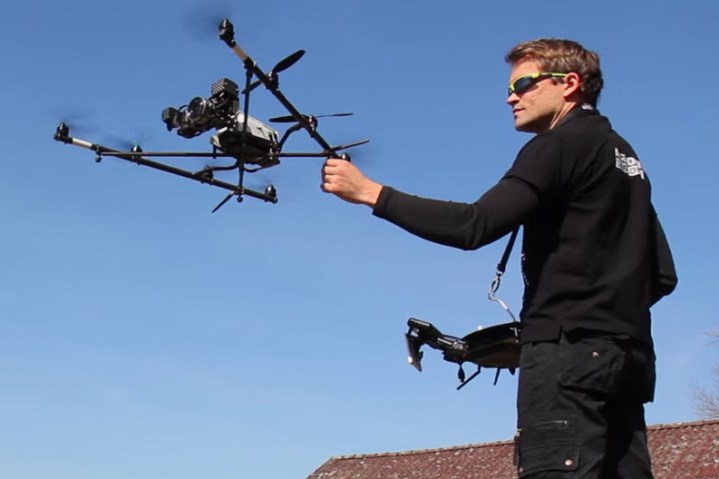
Coming six months after Intel invested $60 million in Shanghai drone-maker Yuneec, this latest deal – the cost of which has not been revealed – represents the chip giant’s growing interest in a technology set for huge growth in the coming years.
“With practical applications ranging from disaster response, to infrastructure inspection, to delivery of goods, UAVs offer an incredible opportunity for innovation across a multitude of industries,” Intel said in a release announcing the deal.
The company added that it’s keen to position itself “at the forefront of this opportunity to increasingly integrate the computing, communications, sensor and cloud technology required to make drones smarter and more connected.”
Intel and Ascending Technologies aren’t new to one another – the pair have already partnered to combine Ascending Technologies’ sense-and-avoid algorithms with the American company’s RealSense technology that offers real-time depth-sensing capabilities. Working together, the technologies can, for example, improve drone safety by enabling remotely controlled flying machines to automatically avoid obstacles that are both stationary and moving.
The current plans is for Ascending Technologies to continue supporting their existing customers while also working with Intel’s Perceptual Computing team “to develop UAV technology that can help drones fly with more awareness of their environments,” Intel said in its release.
Intel CEO Brian Krzanich said last year his company “believes in a smart and connected world, and one of the best ways to bring that smart and connected world to everyone and everywhere has been drones,” adding, “We’ve got drones on our road map that are going to truly change the world and revolutionize the drone industry.”
The sophistication of obstacle-avoidance systems like those developed by Ascending Technologies is likely to have an impact on how the Federal Aviation Administration develops regulations for commercial drone use – its first set of rules is expected to be announced some time this year and will likely pave the way for widespread use of the technology by a range of industries.
With this in mind, Intel is keen to be at the forefront of drone development and avoid missing out as it did with smartphones when its failure to recognize the importance of the expanding sector allowed rivals such as Qualcomm to dominate the market.


